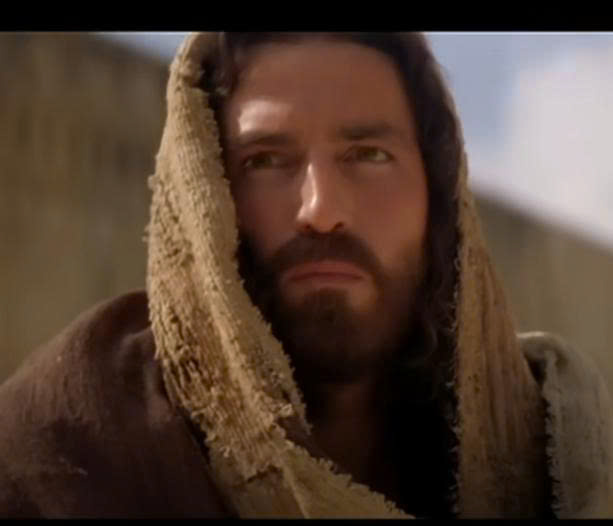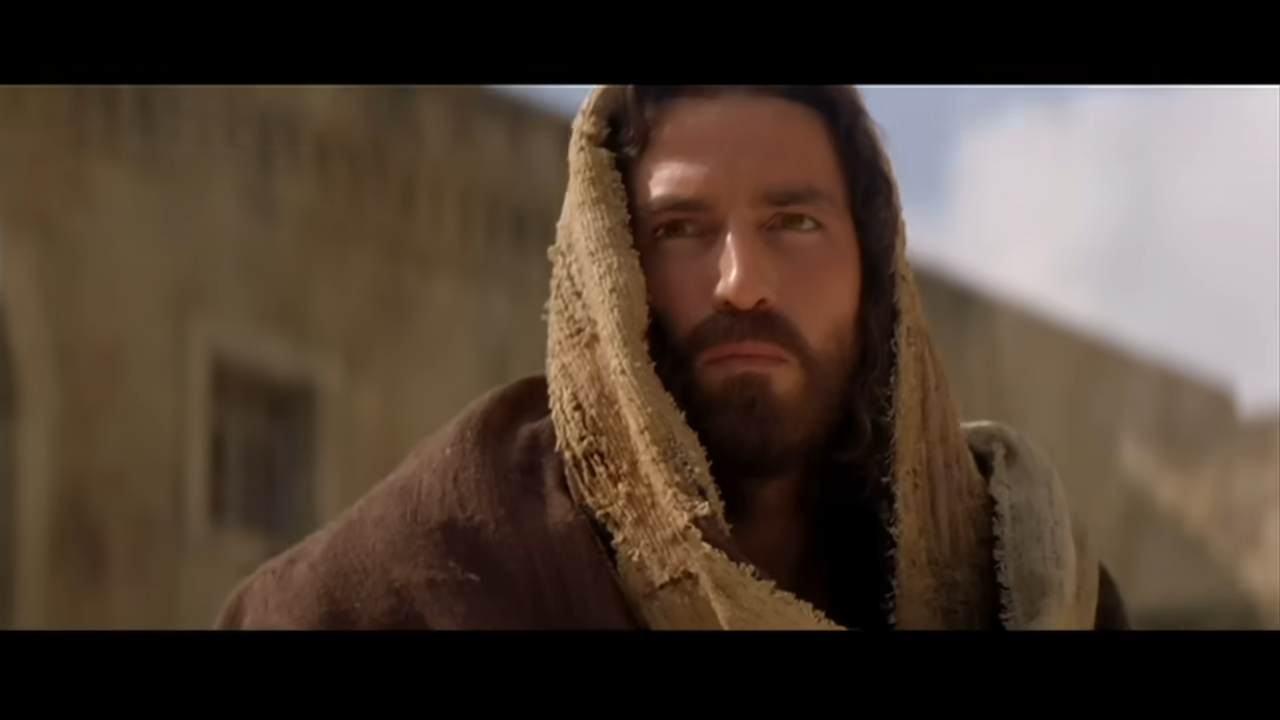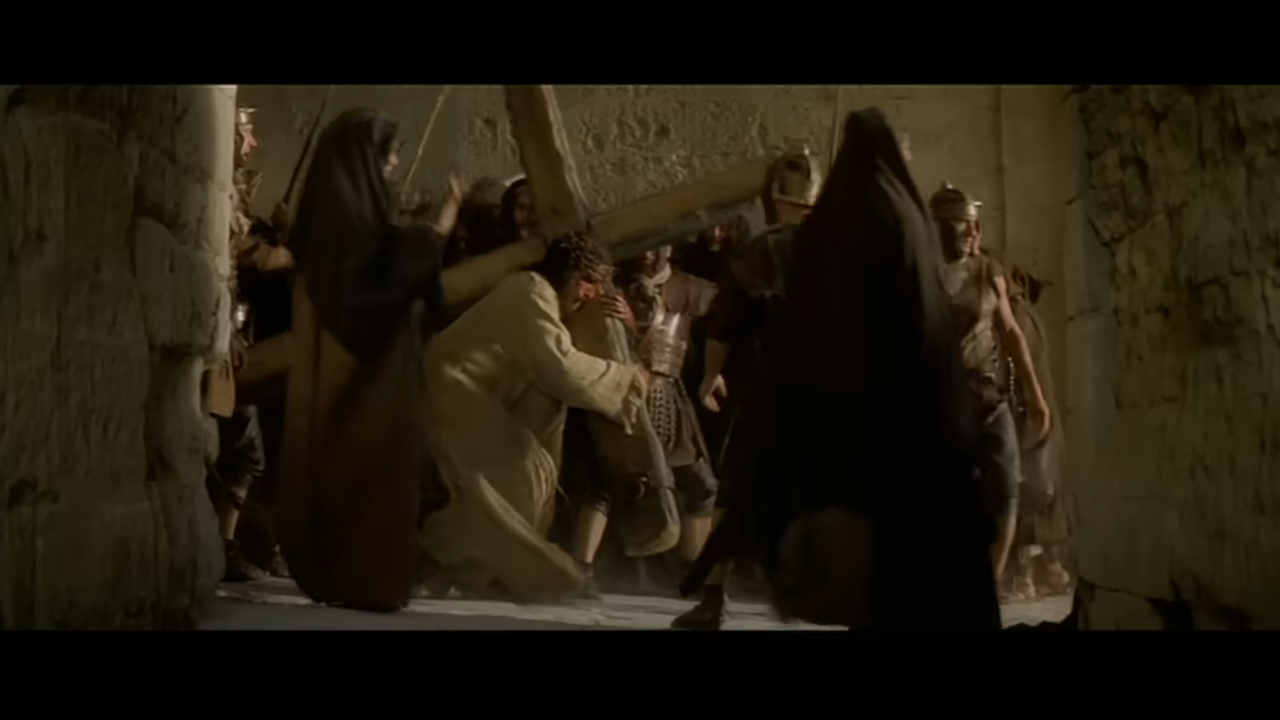The Passion of the Christ: A Film About Unconditional Love

The Passion of the Christ, directed by Mel Gibson, is a profoundly moving film that vividly portrays the final 12 hours of Jesus Christ’s life. Released in 2004, this cinematic masterpiece has left an indelible mark on audiences worldwide, particularly within the Christian community, due to its powerful depiction of grace, sacrifice, and unconditional love. Inspired by the sentiment of the caption you provided—”💔 He didn’t wait for you to be perfect. He came while you were broken. That’s love.”—the film embodies the essence of Romans 5:8: “While we were still sinners, Christ died for us.” In this 1,000-word review, we’ll explore why The Passion of the Christ is a must-watch for those seeking a deeper understanding of faith and divine love.

Plot Summary: The Ultimate Sacrifice
The Passion of the Christ focuses on the final hours of Jesus Christ’s life, beginning with His anguished prayer in the Garden of Gethsemane, followed by His betrayal by Judas, arrest, trial, brutal torture, and crucifixion. The film concludes with a brief yet powerful depiction of His resurrection. Rather than shying away from the harrowing details, the movie unflinchingly portrays the physical and emotional suffering Jesus endured to redeem humanity.

The core message of the film aligns perfectly with the caption’s theme: God’s love is unconditional. Jesus did not wait for humanity to be perfect; He came to offer salvation while mankind was still broken by sin. This gift of grace, unearned and freely given, is central to the film’s narrative, making it a poignant reflection of #GraceNotWorks and #UnconditionalLove.
Key Strengths of the Film

1. Authenticity and Visual Impact
Mel Gibson’s commitment to historical and cultural accuracy is evident in the film’s use of Aramaic, Latin, and Hebrew dialogue with subtitles. This linguistic choice immerses viewers in the first-century setting of Jerusalem. The cinematography is stunning, with meticulous attention to detail in costumes, sets, and the portrayal of Jesus’ suffering. Scenes of the scourging and crucifixion are raw and visceral, leaving a lasting impression of the immense sacrifice made for humanity.
2. Exceptional Performances

Jim Caviezel delivers a remarkable performance as Jesus Christ, capturing both the physical agony and the spiritual strength of the Savior. His expressive eyes convey love, forgiveness, and compassion, even amidst betrayal and brutality. Supporting performances, such as Maia Morgenstern as Mary, Jesus’ mother, add emotional depth, particularly in scenes depicting a mother’s heartbreak as she witnesses her son’s suffering.
3. Music and Sound Design

The film’s score, composed by John Debney, is hauntingly beautiful, enhancing the emotional weight of each scene. From the somber tones during Jesus’ prayer in Gethsemane to the swelling music of the resurrection, the soundtrack elevates the viewing experience. The sound design, including the cracks of the whip and Jesus’ labored breathing, adds a layer of realism that intensifies the film’s impact.
Spiritual Message and Relevance
The Passion of the Christ is more than a historical drama; it’s a spiritual journey that invites viewers to reflect on the depth of God’s love. The film underscores that salvation is not earned through human perfection but is a gift of grace, freely offered to all. This message resonates deeply with the caption’s themes of #Romans58 and #GraceNotWorks, reminding audiences that God’s love embraces us in our brokenness.
The film also challenges viewers to consider their response to this divine love. By depicting Jesus’ sacrifice in such vivid detail, it encourages introspection about faith, forgiveness, and the transformative power of grace. For those seeking inspiration or a renewed connection to their faith, The Passion of the Christ is a powerful catalyst.
Audience and Critical Reception
Upon its release, The Passion of the Christ sparked diverse reactions. Many praised its unflinching portrayal of Jesus’ sacrifice and its ability to inspire faith, while others criticized its graphic violence. Despite the polarized reviews, the film’s global box office success—grossing over $600 million—demonstrates its widespread appeal. For Christian audiences, it remains a cherished depiction of the Gospel narrative, while even non-religious viewers have appreciated its artistic merit and emotional depth.
Is the Film Suitable for Everyone?
Rated R for its graphic violence, The Passion of the Christ is not suitable for young children or those sensitive to intense imagery. The scenes of scourging and crucifixion are particularly harrowing, designed to reflect the brutality of Jesus’ suffering. However, for mature audiences seeking a film that explores themes of faith, sacrifice, and redemption, it is an unparalleled experience.
Why Watch The Passion of the Christ?
- Emotional Resonance: The film delivers a deeply moving experience, allowing viewers to connect with the sacrifice of Jesus on a personal level.
- Spiritual Insight: It reinforces the message of grace and unconditional love, making it ideal for those exploring or deepening their faith.
- Artistic Excellence: The combination of stunning visuals, powerful performances, and evocative music creates a cinematic masterpiece.
Practical Viewing Tips
To fully appreciate The Passion of the Christ, consider watching it in a quiet, reflective setting. For those new to the story, reading the Gospel accounts (e.g., Matthew 26-28) beforehand can provide context. The film is available on various streaming platforms, and subtitles are recommended due to the use of ancient languages.
Comparison to Other Faith-Based Films
While films like The Ten Commandments or The Chosen also explore biblical themes, The Passion of the Christ stands out for its intense focus on the crucifixion. Unlike broader narratives, it hones in on the pivotal moment of Jesus’ sacrifice, making it uniquely suited to the message of grace and redemption highlighted in your caption.
Conclusion
The Passion of the Christ is a cinematic triumph that brings the story of Jesus’ sacrifice to life with unparalleled intensity and emotion. Its message of unconditional love and grace—perfectly aligned with the sentiment of “He came while you were broken”—makes it a timeless film for those seeking spiritual inspiration. Whether you’re a devout Christian or simply curious about the story of Jesus, this film offers a profound exploration of faith, sacrifice, and redemption. Prepare for an emotional journey that will leave you reflecting on the power of divine love long after the credits roll.
Keywords: The Passion of the Christ review, Jesus Christ movie, unconditional love, grace, Romans 5:8, Christian films, Mel Gibson.










